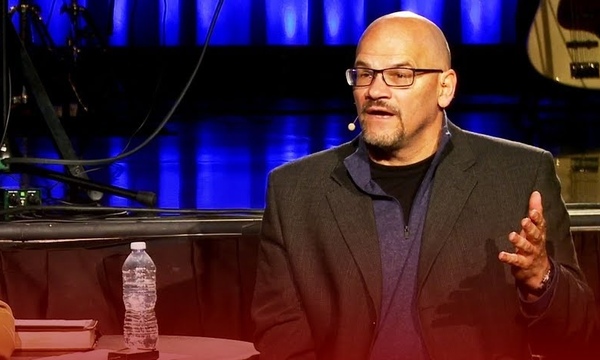On Tuesday, our nation collectively experienced a highly significant moment, as we witnessed the culmination of the case involving the tragic murder of George Floyd.
For some of us, there has been tension, grief and pain that we have carried as we’ve wondered what would be the outcome of the case. As university leaders, we recognize that such events like these take a deep toll on many of us, and we’re thankful for our Administration’s support to allow those of us who needed space to process the complexities surrounding Tuesday’s verdict.
On a personal note, over the past year, we have shared in countless conversations with many members of our community, especially some of our fellow black employees and students, and other people of color, about their genuine concern for their personal safety, and their desire to experience the full respect and dignity as individuals made in the image of God. We recognize that while this verdict addresses the individual issue of accountability for this sin, it does not lessen the importance of addressing systemic sin as part of our pursuit of biblical justice rooted in love and found in the Shalom community.
The incidents over the past year have been a painful reminder that racism and other forms of sinful discrimination continue to wreak havoc on our world. As stated in our Theological Statement on Diversity, “We recognize that the pervasiveness of sin impacts both individuals and institutions. We confess to being a broken community in constant need of healing in relation to our past and present” (Unity Amidst Diversity: Theological Statement on Diversity).
“As Christians who take seriously God’s commands to ‘truly execute justice’ (Jer. 7:5), we must show the world how biblical Christianity offers far more hopeful and unifying answers to the injustices of our day,” said President Corey in Biola’s Biblical Approach to Racial Justice). It is not “their” job but it is our biblical mandate.
As we seek to create a culture of Christ-like love that results in a thriving intercultural community, here are some practical steps we can take.
- Process: You may need a space to process Tuesday’s verdict with others. The Division of Diversity and Inclusion has created separate spaces for Biola faculty, staff/administration and students on Monday, April 26, 12 to 1 p.m. PDT.
- Prepare: Continue to look for ways to educate yourself by visiting our Diversity and Inclusion resource page.
- Pray: Pray and intercede for the family of George Floyd, Derek Chauvin, our nation’s leaders and injustices experienced by many around the world.
- Pursue: Seek additional counseling and support through Pastoral Counseling, Drop-in Counseling, or reach out to a Diversity and Inclusion Team member.
To be transparent, we know you are tired, and so are we. However, in these difficult times, we find our hope and encouragement in moving forward together as the beloved community, as we strive to keep listening, keep learning, and keep standing and advocating for biblical justice. I encourage us all to pray that God would give us the courage we need to live out this calling of Unity Amidst Diversity.
Blessings in Christ,
Division of Diversity and Inclusion
Tamra Malone, Chief Diversity Officer
Lavonue Scannell, Executive Assistant & Program Coordinator
Leon Harris, Director, Faculty Diversity Initiatives and Well-Being
Glen Kinoshita, Director of Diversity Education and Training
Alicia Miller Andre, Director, IE and Assessment
Walter Augustine, Director, IE and Research
Meleca Consultado, Director, SEID
Lester Larios, Assistant Director, SEID
Biola University is a leading Christ-centered university in Southern California that offers a premier, nationally ranked education and has been named one of the nation's “up and coming” universities by U.S. News & World Report four times in five years. Founded in 1908, Biola is committed to the mission of biblically centered education, scholarship and service — equipping men and women in mind and character to impact the world for the Lord Jesus Christ. With more than 6,300 students at its Los Angeles-area campus and around the world, the university offers more than 150 academic programs through its nine schools, ranging from the B.A. to the Ph.D. For more information, visit www.biola.edu.
 Biola University
Biola University
_(1).jpg)

_(1).jpg)